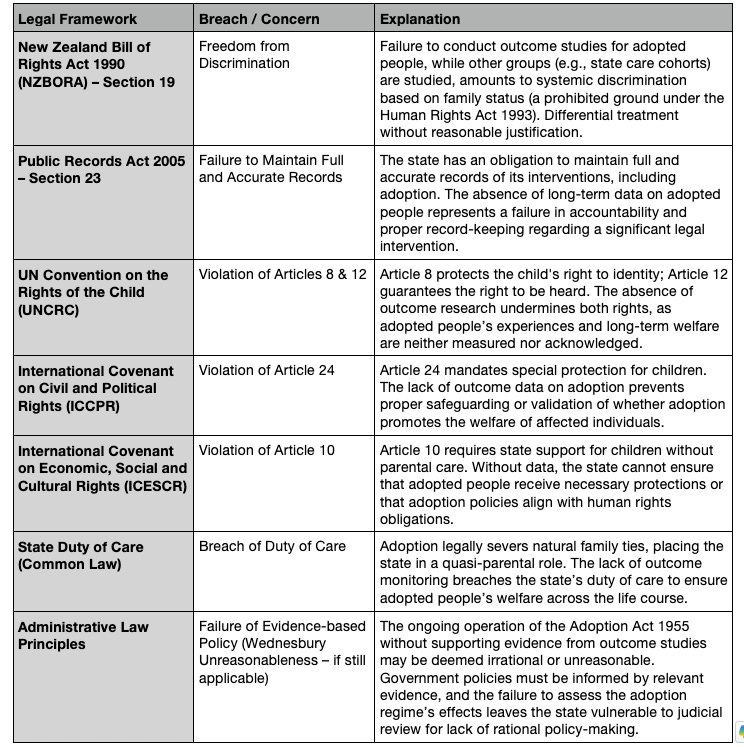Without data, you’re just another person with an opinion.
The state erased our records. Then failed to study the consequences.
Part one in a four-part series on the social, political and statistical erasure of adopted lives.
Given the historical and current commitment to adoption shown by social workers, adopters, government ministries, lawyers and legislators, and the health and politics of forced stranger adoption, we might expect at least one government department in Aotearoa New Zealand to hold studies, statistics or data on adoption outcomes.
Indeed, there were the Ministry of Justice adoption discussion documents from 2021 and 2022 (we’ll return to those in an upcoming column), and submissions to the Royal Commission on Abuse in State and Faith-based Care (also coming soon).
However, neither constitutes empirical, quantitative, longitudinal research into the long-term adult outcomes of human adoption.
Lived experience and personal testimony are vital but not substitutes for outcome studies.
The complete absence of longitudinal outcome studies on adopted adults constitutes a systemic evidentiary void that undermines the legitimacy of the adoption regime and may amount to a breach of New Zealand’s domestic and international human rights obligations.
Here’s how:
The absence of research and data on adoption outcomes in Aotearoa New Zealand solidifies the invisibility of the adopted.
Share this if you’re tired of opinions standing in for evidence.
If you want to know all the ways adopted people are legally discriminated against, subscribe to the series: Adopted Adults and the NZ Bill of Rights (NZBORA)
We’re here to explain and name what the government won’t measure.





The lack of information for research is appalling - or when something turns up its heavily redacted - ahhh. No census, No medical No anything. I really adored Anna Funders 'Stasiland ' describing the labour in meticulously reassembling shredded documents in the former East German Secret Police Archives
Another area for useful study would be offspring of adoptees, how their lives and outcomes compare. Anecdotally I seem to know a lot of fellow adoptees with neurodivergent diagnoses in the family - symptoms of inherited trauma ? I guess we’ll never actually know.